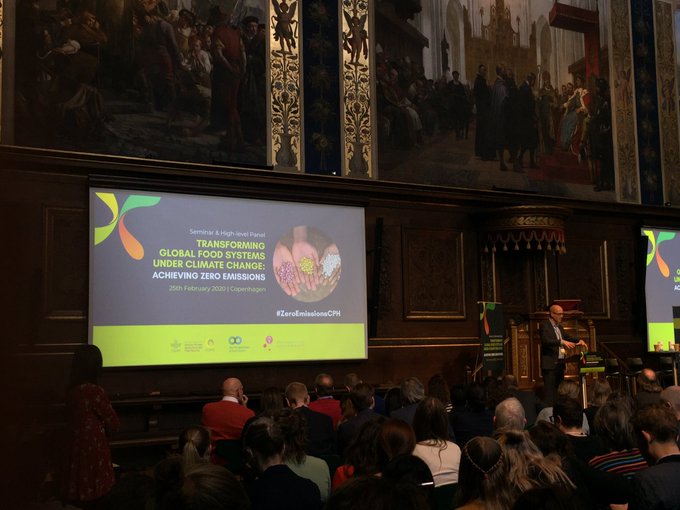 25 February 2020. Copenhagen. Organised by the CGIAR Research Program on Climate Change, Agriculture and Food Security (CCAFS). Transforming global food systems under climate change: Achieving zero emissions.
25 February 2020. Copenhagen. Organised by the CGIAR Research Program on Climate Change, Agriculture and Food Security (CCAFS). Transforming global food systems under climate change: Achieving zero emissions. There has been a growing call among key food systems and climate change stakeholders for transformative changes in the way we produce and consume food. This event focused on three solutions for making our food systems more climate-friendly, drawn from a report by a Panel of Experts to be released in early 2020:
- Driving progressive change through collaboration between industry and social movements: facts, youth and networking
- Towards healthy and sustainable climate-friendly diets: current shifts and likely future scenarios
- Reducing food loss and waste
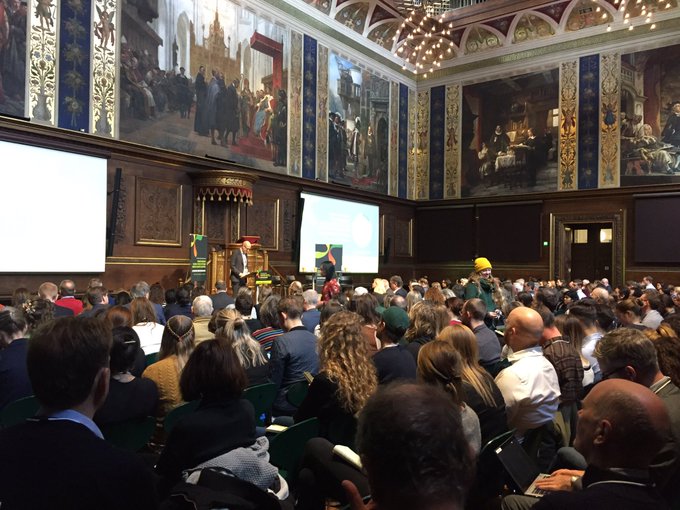
Recordings of the sessions are available on this page
- Chair: Ana Maria Loboguerrero, Head of Global Policy Research, CGIAR Research Program on Climate Change, Agriculture and Food Security (CCAFS)
- Scene-setting: Challenges and opportunities for reducing emissions in the food system
Andrew Campbell (see picture), CEO, Australian Centre for International Agricultural Research (ACIAR)
- Rising to the challenge: An industry committing Anne Lawaetz Arhnung, CEO, Danish Agriculture and Food Council
- Transparency and accountability: Guidance for target setting and measuring progress Tony Siantonas (see picture), Director, Climate-Smart Agriculture, World Business Council for Sustainable Development
The CEO Guide to Food System Transformation (34 pages),CEO’s guide to Food System
Transformation
is a new report produced by the World Business Council for Sustainable Development (WBCSD) in partnership with Bain and Company, serves as a call to action for business leaders to transform our global food system in the next decade.
- Chair: Christian Bugge Henriksen, Associate Professor and Research Group Leader, University of Copenhagen
- Hege Skarrud, President, Spire, Norway
- Sithembile Ndema Mwamakamba (see picture), Senior Program Manager, Food, Agriculture and Natural Resources Policy Analysis Network (FANRPAN)
- Ben Reynolds, Deputy Chief Executive, Sustain, UK
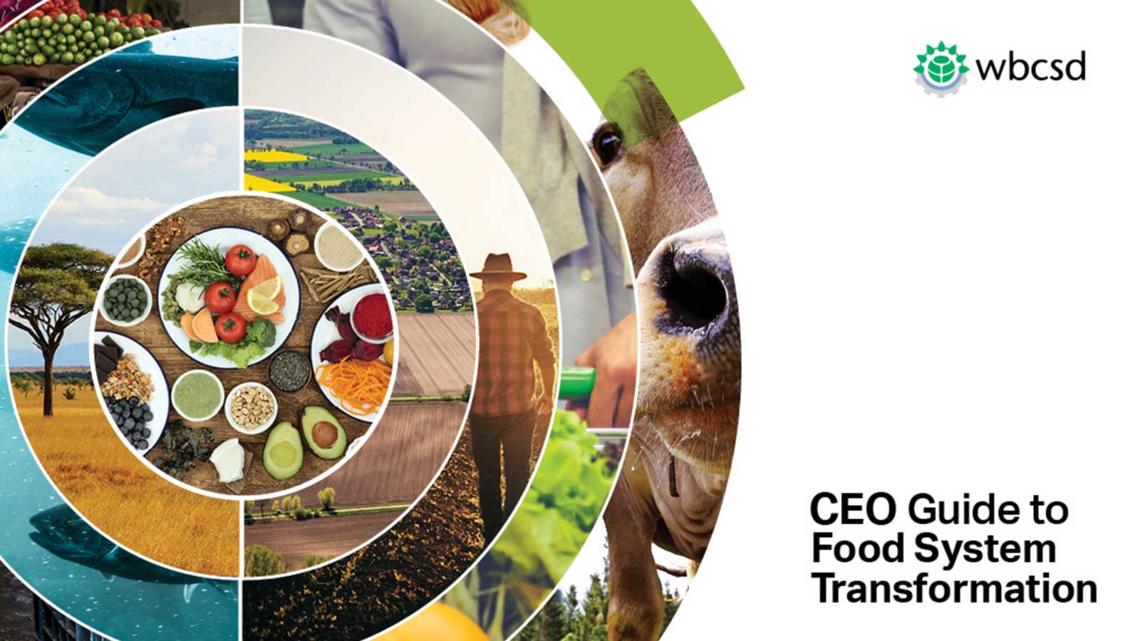
 Session 2: Transformation in practice
Session 2: Transformation in practice - Zero carbon agriculture: is it feasible? Liam Condon, President, Bayer Crop Science
- Reducing emissions from a business perspective
Jais Valeur, CEO, Danish Crown
- Making change happen Selina Juul, Founder, Stop Wasting Food Movement
- Social movements and our food system Sophie Healy-Thow, Lead Group Member, Scaling up Nutrition (SUN), Ireland
Reducing emissions in food systems: What is needed and what is the way forward
- Chair: Katrine Krogh Andersen, Dean, Faculty of Science, University of Copenhagen
- Ida Auken, Member of Parliament, Denmark
- Katherine Richardson, Leader, Sustainability Science Centre, University of Copenhagen
- Mauricio Graber, CEO, Chr. Hansen Holding
- Dhanush Dinesh, Global Policy Engagement Manager, CCAFS
Related:
CCAFS indentified 5 areas with the potential to redefine the way food systems function.2 page brief and full report
Transforming food systems under climate change: Local to global policy as a catalyst for change
2 page brief and full report
Changing diets and transforming food systems
2 page brief and full report
Future technologies and food systems innovation for accelerating progress towards the SDGs2 page brief
Financing the transformation of food systems under a changing climate
2 page brief and full report

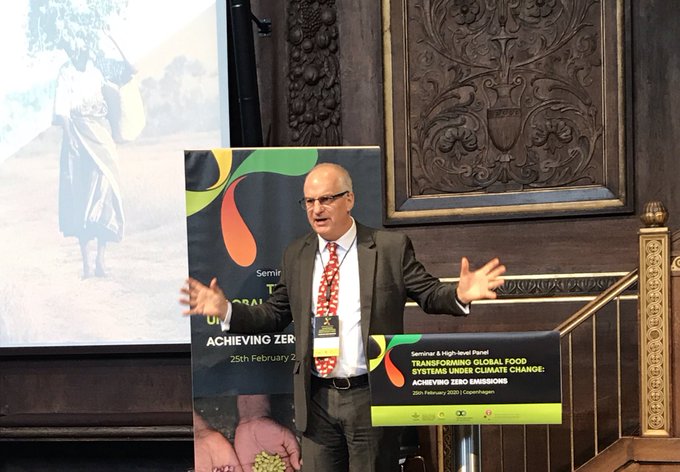
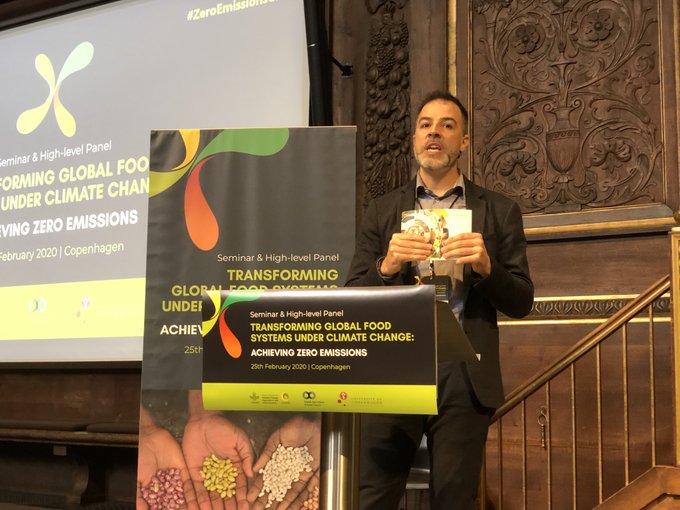
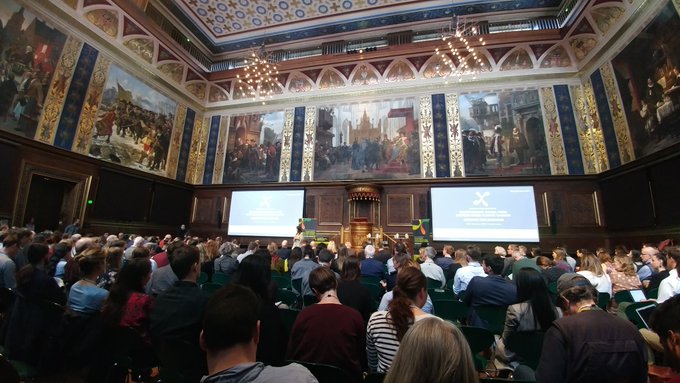
No comments:
Post a Comment